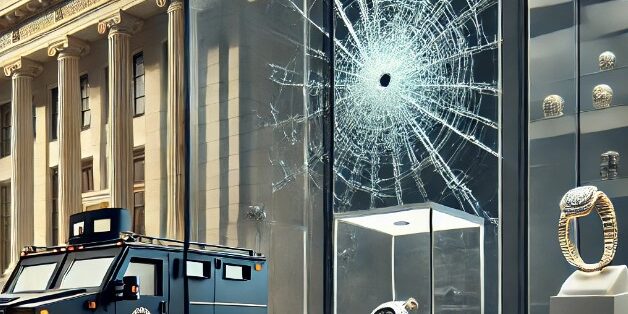Bulletproof glass, also known as ballistic glass, is an essential material designed to resist penetration by bullets. It is widely used in various sectors to enhance security and protection. In this article, we will explore the production process, properties, and diverse applications of bulletproof glass.
What is Bulletproof Glass?
Bulletproof glass is a type of strong, transparent material that can withstand bullets and other projectiles. It is not completely impenetrable but is designed to slow down or stop the bullets to a significant extent. Bulletproof glass typically consists of multiple layers of laminated glass and plastic, such as polycarbonate or a thermoplastic polymer.
Production Process of Bulletproof Glass
The production of bulletproof glass involves several stages to ensure its effectiveness and durability:
1. Layering
The process begins with layering sheets of glass and plastic. These layers are alternated and bonded together to form a thick, cohesive structure. The number of layers and the thickness of each layer depend on the desired level of protection.
2. Lamination
The layers are then laminated together using heat and pressure in an autoclave. This process ensures that the glass and plastic layers are firmly bonded, creating a solid barrier that can absorb and dissipate the energy from bullets.
3. Inspection and Testing
Once the lamination process is complete, the bulletproof glass is subjected to rigorous testing. This includes firing bullets of various calibers at the glass to ensure it meets the required safety standards. Any defects or weaknesses are identified and corrected.
Properties of Bulletproof Glass
Bulletproof glass possesses several unique properties that make it suitable for high-security applications:
Impact Resistance
The primary property of bulletproof glass is its ability to resist impact from bullets and other projectiles. The multiple layers of glass and plastic absorb and disperse the kinetic energy, preventing the bullet from penetrating through.
Transparency
Despite its strength, bulletproof glass maintains a high level of transparency. This is crucial for applications where visibility is essential, such as in windows and display cases.
Durability
Bulletproof glass is highly durable and can withstand various environmental conditions. It is resistant to shattering, cracking, and weathering, making it suitable for both indoor and outdoor use.
Customization
Bulletproof glass can be customized to meet specific security requirements. It can be produced in various thicknesses and sizes, and additional features like tinting or UV protection can be incorporated.
Applications of Bulletproof Glass
The unique properties of bulletproof glass make it an invaluable material across various industries. Here are some of the key applications:
1. Banking and Finance
In the banking and finance sector, bulletproof glass is used to protect employees and customers from potential armed robberies. Key applications include:
- Bank Teller Windows: Bulletproof glass provides a secure barrier between bank tellers and customers, preventing any attempts at armed robbery.
- ATM Enclosures: ATMs are often fitted with bulletproof glass to protect against vandalism and theft.
- Cash Transport Vehicles: Vehicles used to transport cash and valuables are equipped with bulletproof glass to ensure the safety of the personnel and the cargo.
2. Government and Military
Government buildings and military installations often use bulletproof glass to protect personnel and sensitive information. Applications include:
- Embassy Windows: Bulletproof glass is used in embassies to protect against potential attacks and ensure the safety of diplomatic staff.
- Military Vehicles: Armored vehicles used by the military are fitted with bulletproof glass to protect soldiers from gunfire and explosions.
- Security Checkpoints: Bulletproof glass is installed at security checkpoints to provide a secure environment for security personnel.
3. Commercial and Retail
In the commercial and retail sectors, bulletproof glass is used to protect valuable assets and ensure the safety of employees and customers. Applications include:
- Jewelry Stores: Display cases in jewelry stores are made of bulletproof glass to protect valuable items from theft.
- Convenience Stores: Bulletproof glass is used at cashier counters in convenience stores to deter robberies and protect employees.
- High-End Retail Stores: Bulletproof glass is used in windows and doors of high-end retail stores to prevent smash-and-grab thefts.
4. Residential
In residential settings, bulletproof glass is used to enhance home security. Applications include:
- Windows and Doors: Bulletproof glass can be installed in windows and doors to protect against break-ins and ensure the safety of residents.
- Panic Rooms: Homes with panic rooms often use bulletproof glass to provide a secure refuge in case of an emergency.
5. Automotive
In the automotive industry, bulletproof glass is used to protect occupants of vehicles from potential threats. Applications include:
- Armored Vehicles: Vehicles used by VIPs, law enforcement, and security personnel are equipped with bulletproof glass to provide protection from gunfire.
- Personal Vehicles: Some individuals opt to have bulletproof glass installed in their personal vehicles for added security.
Conclusion
Bulletproof glass is a vital material that enhances security and protection across various sectors. Its unique properties, such as impact resistance, transparency, and durability, make it an invaluable asset in high-security applications. From banking and finance to government and military, commercial and retail to residential and automotive, bulletproof glass provides an essential layer of protection that helps safeguard lives and valuable assets.
For those seeking reliable and high-quality bulletproof glass solutions, Autoclave Glass Ltd offers a wide range of products tailored to meet diverse security needs. Visit Autoclave Glass Ltd for more information and to explore their extensive range of bulletproof glass products.




